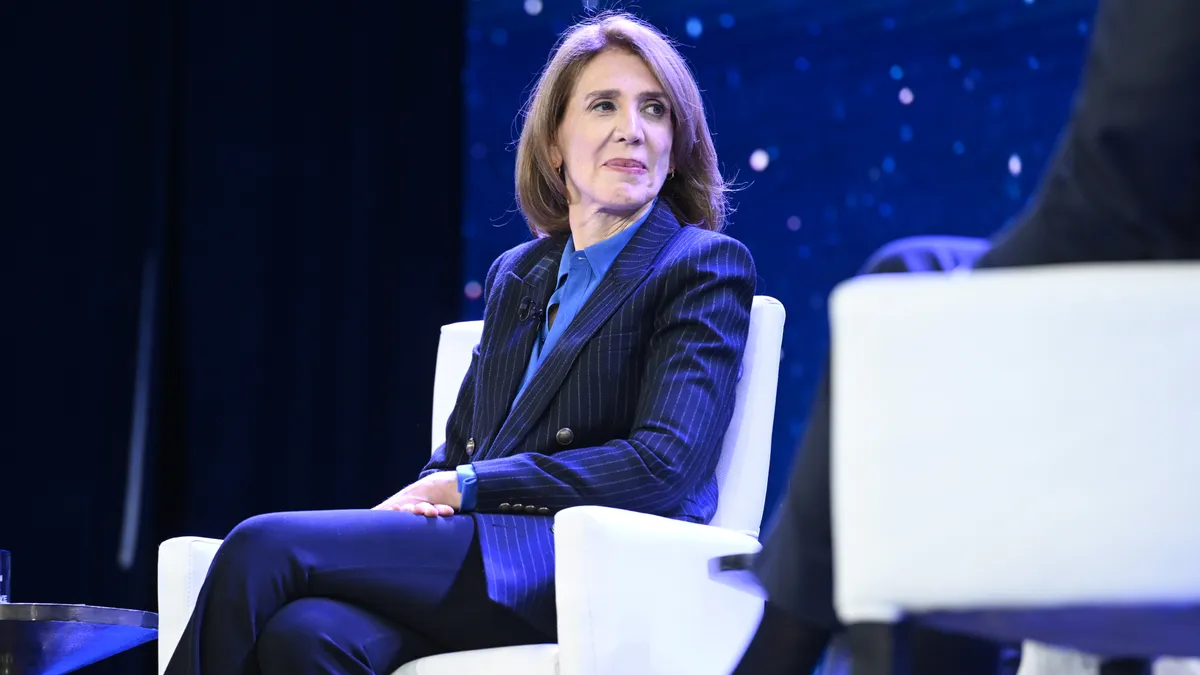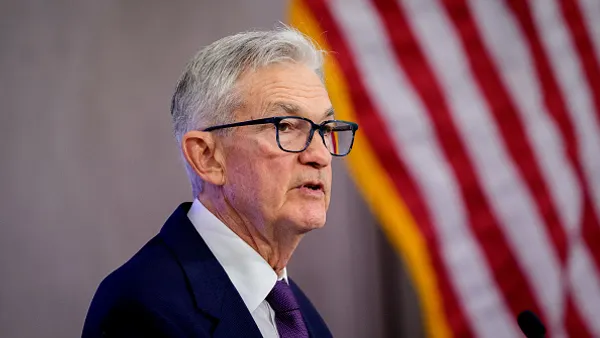Dive Brief:
- The share of Fortune 500 and S&P 500 companies that tapped candidates outside their companies to take CFO seats rather than promoting from within rose to 44% in H1 from 42% in 2023, topping the historical average of 39% and notching a 10-year high, according to a wide-ranging midyear report released Monday that tracks leadership trends from executive search firm Crist Kolder Associates.
- Sitting CFOs at major firms also got a little less love from their firm’s hiring committees, with the percentage of finance chiefs getting the call to jump to CEO within their firms dipping to 7.1% in H1 from 8.4% during the same period last year. The CFO-to-CEO leap was more commonly made by finance chiefs in energy (23%), consumer (21%) and services (21%) sectors, with far fewer getting a chance to grab the brass ring in technology (8%), healthcare (6%) and industrial companies.
- The trends suggest weak internal talent development and succession plans at many corporations, according to Josh Crist, co-managing partner at Crist Kolder. “It tells you that there’s no bench strength. Without bench strength you’ve got to go outside,” he said of the numbers.
Dive Insight:
It’s not altogether unusual for companies to cast a wide net for top positions — CFOs skills are transferable and a strong finance chief can succeed in a different industry. But many eyes will now be watching to see how some of this year’s blockbuster external CFO hires will steer their companies in the fast-changing economy, Crist said.
In June, Alphabet tapped pharmaceutical firm Eli Lilly’s finance chief, Anat Ashkenazi, to replace Ruth Porat, the tech giant’s long-time CFO. Meanwhile, Costco Wholesale tapped Gary Millerchip, the CFO of grocer Kroger, to succeed Richard Galanti – who oversaw the club retailer’s finances for about four decades.
Meanwhile global grain trader Archer Daniels Midland named Monish Patolawala — most recently the CFO of industrial product maker 3M — as its executive vice president and CFO, signaling a push for a fresh start after grappling with accounting woes.
It’s not altogether clear what is causing the tilt toward more external hiring but it may stem from the challenging environment that corporations have been grappling with since about 2020 when the pandemic hit, Crist said.
“We’ve had a pretty choppy half decade and at the end of the day you want people who are good at what they do in their jobs,” Crist said. Pressures may have prompted companies to “silo their number twos,” effectively leaving the companies playing it safe and failing to develop the talents of their finance team.
Ideally what needs to happen is that a strong chief accounting officer or controller would have been moved into different divisions so that they obtained the business experience they needed to move up to CFO. But he believes it’s possible that traditional talent development may have been stymied.
“We’re looking back now and saying, ‘Oh shoot, it’s almost five years later and we haven’t been able to move these people around,’” Crist said. “I think that’s what we’re seeing play out.”














